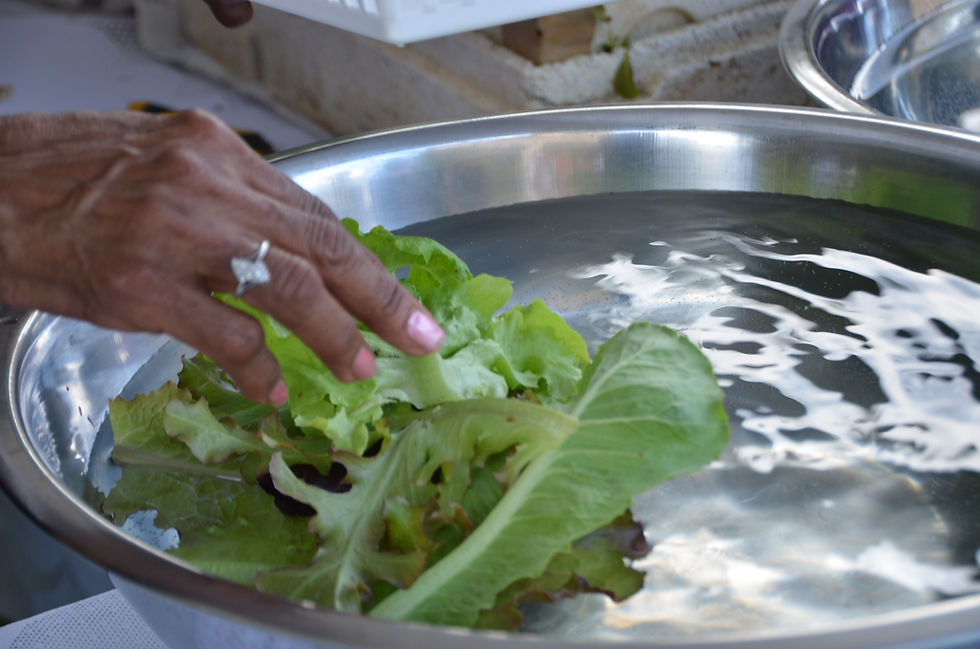Harvesting Honey Sustainably: Protecting Bees While Enjoying Nature’s Sweetest Gift
- caprililly
- Feb 28
- 3 min read
Harvesting Honey Sustainably: Protecting Bees While Enjoying Nature’s Sweetest Gift
Honey is one of nature’s most incredible superfoods, offering a natural sweetener packed with enzymes, antioxidants, and medicinal properties. However, sustainable honey harvesting goes beyond simply collecting honey—it’s about preserving the health of bee colonies, protecting ecosystems, and ensuring long-term honey production. At KET’S Gourmet Farm, we follow ethical beekeeping practices that allow us to enjoy honey while keeping our buzzing pollinators safe and thriving.

Why Sustainable Honey Harvesting Matters
Bees are crucial to our food system, pollinating crops that make up over 75% of the world’s food supply. Without them, fruits, vegetables, and many other foods would struggle to grow. Unsustainable honey harvesting methods, such as over-extracting honey, improper hive handling, and pesticide exposure, weaken colonies and can contribute to colony collapse disorder (CCD). By adopting sustainable honey-harvesting practices, we can protect bees, maintain biodiversity, and produce high-quality honey without harming the environment.

Best Practices for Sustainable Honey Harvesting
1. Harvest Only the Surplus Honey
Bees work hard to produce honey, not just for humans but for their own survival. Honey serves as their primary food source, providing them with energy and nutrients, especially during cold months or dry seasons when nectar is scarce. A sustainable beekeeper only harvests the surplus honey, ensuring that the bees have enough for their own needs. At KET’S Gourmet Farm, we carefully monitor our hives and never take more than what’s necessary.
2. Use Gentle Extraction Methods
Traditional honey extraction methods often involve smoking out bees aggressively or using chemicals that disrupt their habitat. Instead, sustainable beekeeping relies on gentle harvesting techniques, such as:✔ Using cool smoke sparingly to calm bees without stressing them✔ Extracting honey by hand or with slow centrifugal force to avoid harming bees✔ Removing only fully capped honeycombs, ensuring the honey is mature and ready
By treating the bees with care and respect, we allow them to continue thriving in a stress-free environment.
3. Avoid Pesticides & Provide Natural Forage
Many commercial bee farms expose their colonies to harmful pesticides and synthetic treatments that weaken the bees’ immune systems. At KET’S Gourmet Farm, we maintain an organic, pesticide-free environment, ensuring that our bees forage on diverse, chemical-free plants. This not only keeps the honey pure and natural but also supports pollinator health and biodiversity.
4. Reuse Beeswax to Support the Colony
Sustainability means using every part of the hive efficiently. Instead of discarding beeswax, we collect and melt it to create new hive frames. This helps expand the apiary naturally while providing bees with the structure they need to keep producing honey. At KET’S, we follow a zero-waste philosophy, making the most of what nature provides.

The Sweet Reward: Pure, Sustainable Honey
When harvested responsibly, honey is a gift from nature that keeps on giving. At KET’S Gourmet Farm, we produce Tuck-Villa Honey, a 100% raw, organic, and sustainably sourced honey, free from additives and rich in flavor and nutrients. By following ethical practices, we ensure that our bees continue to thrive, pollinate, and support the delicate balance of our ecosystem.
If you’re looking for pure, sustainable honey, consider supporting local beekeepers who prioritize bee welfare and environmental sustainability. With every spoonful of honey, you can enjoy the natural sweetness of the earth while protecting the bees that make it possible! 🐝🍯




Comments